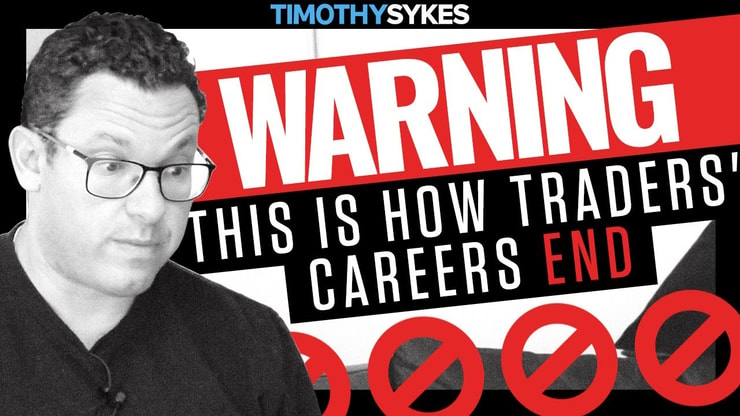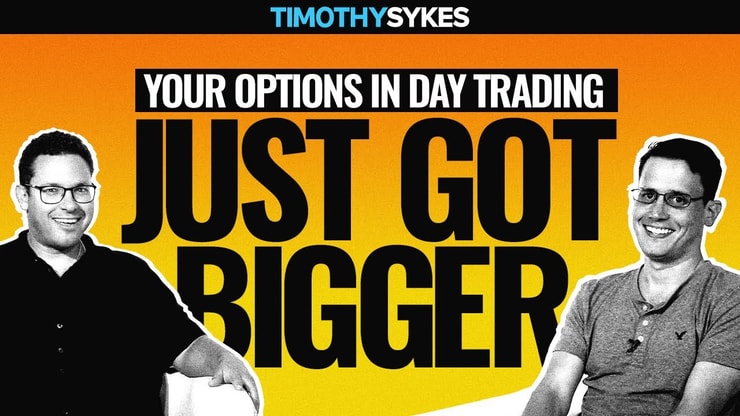Binary option trading is a deceptively simple trading method. You either profit or lose everything depending on whether your price prediction is right.
Can they provide big gains? Yes. Can you lose a lot of money on binaries? That’s more likely.
There are winners and losers in every trade, but the reality is that most traders lose because they’re just gambling. And that’s exactly what binary options are for.
I don’t trade binaries — I think there are better options out there.
Are binary options a scam? That depends on the binary options broker.
Binaries are being outlawed in more and more places. Because of this, binary brokers are often found in countries with poor regulation.
Don’t want to trade binaries? I commend you… Regardless, knowing more about the market is always good.
Table of Contents
What Is a Binary Option?

2025 Millionaire Media, LLCA binary option is a type of options contract where you win or lose money based on the underlying asset’s price at expiration. Traders guess whether or not an option will meet or exceed an extremely short-term strike price by answering “yes” or “no.” That’s where the term binary comes from.
In options trading, there are ways to refine your strategy and limit your risk. Binaries are pure speculation — essentially, just betting.
And in betting, the house always wins.
The binary even extends to your losses and gains. American binaries either pay out $100 or nothing. Some people call them “all-or-nothing options.”
Besides stocks, you can speculate on different kinds of markets with binary options contracts. Here are five examples:
- Foreign currency pairs
- Stock indices
- Commodities
- Crypto
- Economic events
How Do They Work?
The binary options market works differently in different countries. American binary exchanges work similarly to sports betting, with lines and odds.
Like sports teams, the “favorite” position on a stock or commodity is more expensive to buy but more likely to happen. Meanwhile, the “underdog” side of the transaction is cheaper but less likely to occur.
American binary options always reward you with $100 if you get it right. So, the higher the buy-in, the less you’ll profit on correct guesses.
The U.S. has two regulated binary options exchanges, Nadex and the Chicago Board Options Exchange (CBOE). You’ll find many more binary exchanges online.
Be careful with online binary exchanges — they have even larger house fees.
That’s the least of your worries… Many of them are outright scams and fronts for identity theft.
Real-Life Example of a Binary Options Contract

2025 Millionaire Media, LLCNeed a real-life example of a binary options contract? Here’s one in action:
Let’s say there’s a binary option on Tesla Inc. (NASDAQ: TSLA) shares being above $190 at 2 p.m. Eastern on March 7.
Two hours earlier, when you entered the trade, it was chopping around $189…
You think it will stay below $190, which is the most likely outcome. Nevermind that it’s currently below that strike price, just look at this downtrending chart:
Since you’re taking the most likely position, the binary option costs $65. You’ll make $35 if you’re right, but lose $65 if you’re wrong.
Uh-oh — the stock spikes mid-day. It’s sitting at $190.78 when it expires. You lose the entire trade.
See why I don’t like this trading strategy? If you had been shorting Tesla, you’d either have covered during its lunchtime spike past $193, or held on through its close below $188. You would have made some money or cut your losses — but either way you wouldn’t have lost everything.
You can still use delta to see a binary option’s value. Check out my guide to delta in options trading.
Pros of Binary Option Trading
Binary trading is a risky financial product, but that doesn’t mean it’s all bad. There are some benefits to it. You’ll have to decide whether the good outweighs the bad, though.
Here are three benefits of binaries:
High Return on Investment Potential
The potential profits and average returns with binary trading are relatively high. The “prize” is fixed at $100, but you can buy binary options with low fees to maximize return potential.
Known Risk and Reward
Your risk and reward is fixed in binary option trading. If you win, you get $100, but your initial investment is gone if you lose. Your risk is limited, which is key in trading.
More Breaking News
- Is Futu’s Stock an Underrated Gem?
- Eos Energy: Board Changes and Stock Impact?
- Can Splash Turn It Around?
Easy to Understand and Low Barrier to Entry
Binary trading is really simple. You know the win and loss conditions and how much you can make (or lose).
Will the current price exceed a certain point — yes or no? If you’re right, then you win money. If you’re wrong, you lose the buy-in.
Cons of Binary Option Trading
Binary option trading doesn’t have the best reputation — that’s because many traders lose a lot of money.
Here are some things to watch out for with binary options:
Lack of Regulation and High Fraud Potential
Once you get past the legit exchanges — Nadex and the CBOE — binary exchanges are the Wild West. You’re more likely to be scammed with binary options than other trading methods.
Many binary options providers try to tempt traders. They promise them “an easy path to riches” and other get-rich-quick sentiments. They’re most likely scams. Binary options providers get closed down around the world every day.
Some unsavory binary options websites refuse to reimburse funds to customers. They even engage in trade manipulation.
Many of them operate in unregulated jurisdictions, away from financial authorities and lawsuits.
Not every online binary trading platform is a scam… just enough to make me never want to trust any binary website.
Big Loss Potential
Binary options trades are all-or-nothing financial products. If you lose, then you lose your entire investment. That’s the number-one thing to avoid in trading…
EVERY day in the stock market lately is a different kind of trading day and you MUST adapt to the current conditions or else you'll lose like 90% of traders do as they don't prepare, they aren't meticulous, they aren't cautious because they gamble, gunsling & eventually blow up!
— Timothy Sykes (@timothysykes) September 3, 2020
No Loss Prevention Method
In stock trading, you can cut your losses quickly. In options trading, you can let an option expire or trade it.
You don’t have any loss-prevention tools in binary options. If you lose, you lose everything.
Curious about options trading — a more strategic options form? Read more about its history and how to start learning it.
How Are Binary Options Regulated in the U.S.?

2025 Millionaire Media, LLCBinary options have been legal in the U.S. since 2008. But this only covers binaries on regulated American exchanges, Nadex and the CBOE.
The SEC regularly warns traders to avoid other binary options platforms.
How to Trade Binary Options
My advice: don’t trade binary options.
It’s hard to get an edge in binary options trading. They’re more like gambling than trading.
They rely on luck, not knowledge and experience. That’s the opposite of what trading should be.
Regular options trading is more reliant on trading skills. That’s what my former student Mark Croock teaches in his Evolved Trader program. He’s taken my penny stock strategies and applied them to options trading — making $3.9 million in the process!
Here’s a sneak peek of Mark’s curriculum:










Leave a reply